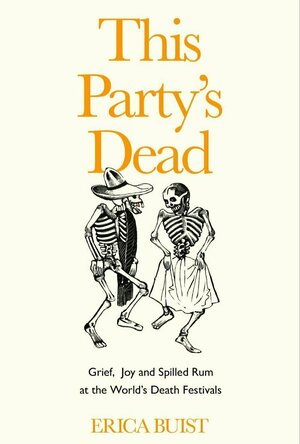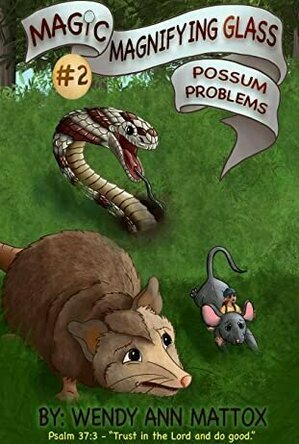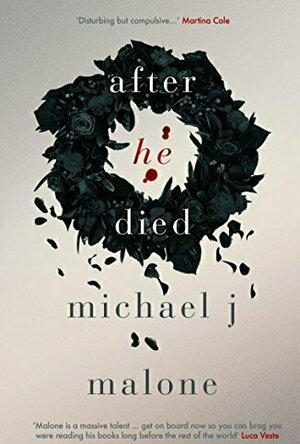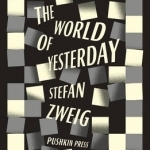
World of Yesterday: Memoirs of a European
Anthea Bell, Stefan Zweig and David Pearson
Book
'The time provides the pictures, I merely speak the words to go with them, and it will not be so...

Charles Kennedy: A Tragic Flaw
Book
Charles Kennedy was found dead on 1 June 2015. He was only 55 years of age. His death was due to...

Paradise Lost by John Milton
Podcast
Magnificent in its scale and scope, this monumental poem by the blind poet John Milton was the first...
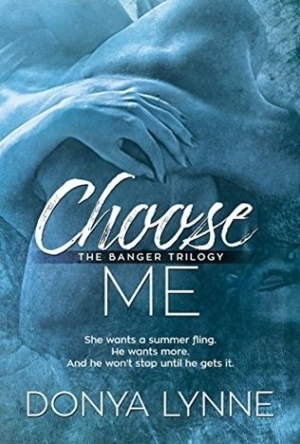
Choose Me (Banger Trilogy #1)
Book
She wants a sexy summer fling. He wants more. And he won’t stop until he gets it. NOTE: This...

Look and Find® Elmo on Sesame Street for iPad
Games and Book
App
This is an interactive games app, which will help teach your child observation and memory skills in...
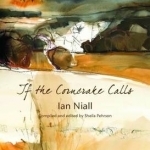
If the Corncrake Calls
Ian Niall, Sheila Pehrson and Barbara Greg (Illustrator)
Book
When the Scottish writer John McNeillie died on the 24th June 2002 aged 85, he left behind a legacy...
Kristy H (1252 KP) rated Do No Harm in Books
Feb 25, 2021
"I felt like I'd been dropped down a rabbit hole with the wolf sitting right outside. And the wolf was my husband."
This is a brutal dark read that pulls you into Emma and Nate's dilemma immediately. Personally, I found it hard to read about Josh's illness. I have a difficult time with books about kids being sick. But, McDonald is an excellent writer, and she does a wonderful job portraying stricken parents, pushed to the brink, who would do anything for their child. For Emma, it's turning to selling drugs. For Nate, it's working constantly to solve his current case, which means a promotion that could brings additional money for their family. The story is told from each of their perspectives, ratcheting up the tension with each chapter.
Emma, it seems, really has no limits on what she would do for Josh. McDonald makes the reader question: how far would you go to save your child? The book also offers a nuanced perspective on the opioid crisis, versus the usual "drugs bad" stance we get in many novels, which I appreciated. The entire novel makes you think and question standard perspectives in so many ways. It turns good versus evil and right versus wrong on its heels. And it offers a dark and insightful look into drug addiction and chronic pain and how families support each other (or don't).
Overall, this isn't an easy read, but it's a well-written and compelling one. It's timely, with an excellent perspective on the drug problems facing Americans and leaves the reader questioning much about right versus wrong. 4 stars.
I received a copy of this book from Gallery Books and Netgalley in return for an unbiased review. It is available on 2/16/2021.
Laura Doe (1350 KP) rated This Party’s Dead in Books
Mar 8, 2021
In an idea to cure her agoraphobia and the death anxiety she has developed since her father-in-law-to-be passed, the author (Erica) decides to visit festivals around the world that celebrate rather than mourn death.
We start of in Mexico at the colourful Day of the Dead celebrations, and we are taken through the story behind La Catrina and the traditions that aren’t normally seen by tourists because it isn’t the party side. Next we are taken to Nepal and the Gaijatra festival which is led by a cow (or if a cow is unavailable a boy dressed as a cow). Next, we go to Sicily where there are biscotti specially made to represent bones and sugar knights. Madagascar’s Famadihana involves families “turning the bones” where they take their ancestors from the crypts and rewrap them and put their names on them before putting them back. China’s tomb-sweeping festival (Qingming) where they burn paper effigies of iPhones and money is next on the tour and then swiftly onto Japan’s Obon festival where they spend three days visiting their ancestors and honouring them with offerings. Finally we stop at Bali, where they can have a corpse resting in their house for years until family arguments are settled and they also will take them out of their tomb and hang out with them. Finally, we go back to the UK where Erica and her husband finally scatter her father-in-laws ashes.
Erica takes us through a journey of learning to accept death (unless you’re of the transhuman persuasion) and gives us a book full of humour whilst doing it. It’s definitely made me realise death shouldn’t be such a taboo subject and gave me a lot to think about. You can also visit her Instagram @thepartysdead for pictures of her journey!
Lindsay (1793 KP) rated Possum Problems (The Magic Magnifying Glass #2) in Books
Aug 8, 2021
What adventures will Fin and Perry get into along with Elliott? There seems to be a baseball mystery for Fin to solve along with two other puzzles. This book reminds me of my experience with a possum for the first time. I met my first ever possum through an incident in my backroom when I checked on my cats. I found him in a wastebasket; it is beyond me how it got in the backroom or the wastebasket. My first words when I told my mom about this strange creature; I called it “Big Fat Rat” though it was not a rat. Though that is what it looked like to me. To this day, we get a laugh out of me calling my first experience with a possum a Big Fat Rat. He ended up back outside once mom came home, and we got it outside on the porch.
I was not scared of the thing. I was more startled and wondering what and how it got into the house. Not so much that it was scary, so this book teaches you what a possum is, and we get an adventure with one. We finally meet Mr. Mole as well. Now snakes are not a favorite of mine, But will Bart learn to be kind or not? Snakes do like mice, I believe. So we meet a snake for the first time in this book. Will Martin’s baseball mystery get solved.
Children will learn about nature and animals in nature. We also see how having friends and asking for help is good. Will James leans to lean on God’s trust. What does the new bible verse mean that shows up on the magnifying glass lens? What trouble will Fin and Perry find when looking for Perry’s family? Does Martin seem to think that a possum might have ruined this baseball? Did he or not. Children will enjoy reading a clean read and learning about wildlife animals. Animal facts are an excellent way to learn about through a book, and children will love them.
I can’t wait to see what the next adventure Fin and his friend Elliott
get up to and what other friends Fin meets along the way.
BookInspector (124 KP) rated After He Died in Books
Sep 24, 2020
The narrative of this novel is very masterfully delivered. It covers a really wide spectrum of events: we have a domestic noir, filled with family relationships and grief, and at the same time we have murders and mystery which are unfolding very slowly. I really liked the topics M. Malone discussed in this book, such as poverty and homelessness; how people deal with grief and what death brings to the families; drugs and how it influences people and their future, etc. I think this novel is more character driven than the investigation itself, but all these talks about feelings and sadness were too much for me at times, I wanted more pace and more unexpected findings. 🙂 Don’t get me wrong, there were plenty of surprises and twists, but I needed more. 😀
I really enjoyed M. Malone’s writing style, it is a very well crafted novel, and his way of sharing Scottish lingual nuances was absolutely adorable and I really liked them. 🙂 This book has a very strong “rich vs. poor” accent, and the setting is changing between luxury, wellness, and shady areas with homeless people, and I found it very well balanced in this book. The chapters were pretty short, and the whole novel was quick and easy to read. The ending of this book rounded this novel very well and it did leave me satisfied. So, to conclude, this is a very sensitive novel, where the pain after someone’s death is very raw and haunting, but at the same time, it is a great thriller filled with very realistic and casual characters and a very unexpected plot. I really liked this novel, and I hope you will give this book a try and enjoy as much as I did.

